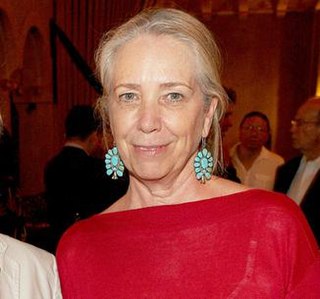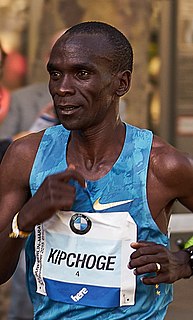A Quote by Virchand Gandhi
According to the Jain view, soul is that element which knows, thinks and feels. It is in fact the divine element in the living being. The Jain thinks that the phenomena of knowledge, feeling, thinking and willing are conditioned on something, and that that something must be as real as anything can be.
Related Quotes
The soul must be distinct from intellect because even at its best, what the soul does when it's thinking, is it thinks linguistically, it thinks in a temporarily extended way, so it for example, might go through the steps of an argument chain, as if you were going through a syllogism and seeing that something followed from the premises, whereas intellect simply grasps the forms.
... the divine knowing - what the Father knows, and what the Word says in response to that knowing, and what the Spirit broods upon under the speaking of the Word - all that eternal intellectual activity isn't just daydreaming. It's the cause of everything that is. God doesn't find out about creation; he knows it into being. His knowing has hair on it. It is an effective act. What he knows, is. What he thinks, by the very fact of his thinking, jumps from no-thing into thing. He never thought of anything that wasn't.
A man’s ignorance sometimes is not only useful, but beautiful - while his knowledge, so called, is oftentimes worse than useless, besides being ugly. Which is the best man to deal with - he who knows nothing about a subject, and, what is extremely rare, knows that he knows nothing, or he who really knows something about it, but thinks that he knows all?
Every thing thinks, but according to its complexity. If this is so, then stones also think...and this stone thinks only I stone, I stone, I stone. But perhaps it cannot even say I. It thinks: Stone, stone, stone... God enjoys being All, as this stone enjoys being almost nothing, but since it knows no other way of being, it is pleased with its own way, eternally satisfied with itself.
It's very important to distinguish between what most people in the West think about knowledge, and what the Indian concept of knowledge is. In the West the knowledge is something that is tangible, is material, it is something that can be transferred easily, can be bought and sold; or as in India real knowledge is something that is a living being - is a Vidya.
If something produces an undue amount of pleasure or undue amount of displeasure, it's going to be judged differently and it's going to be introduced in your narrative with a different size, with a different development. So that is the next element to superimpose on the sequencing element. And in fact, that element is so powerful that very often it can trump the sequencing event, that the sequencing aspect.
I don't fear death. I'm not obsessed with it the way everybody else seems to be. It's wrong to say "everybody," but in literature I see it all the time - preoccupation with it, philosophical preoccupation, in fact. That's a principle element of literature and philosophy, often cited as the main element, the only real element. I say give it up.



































